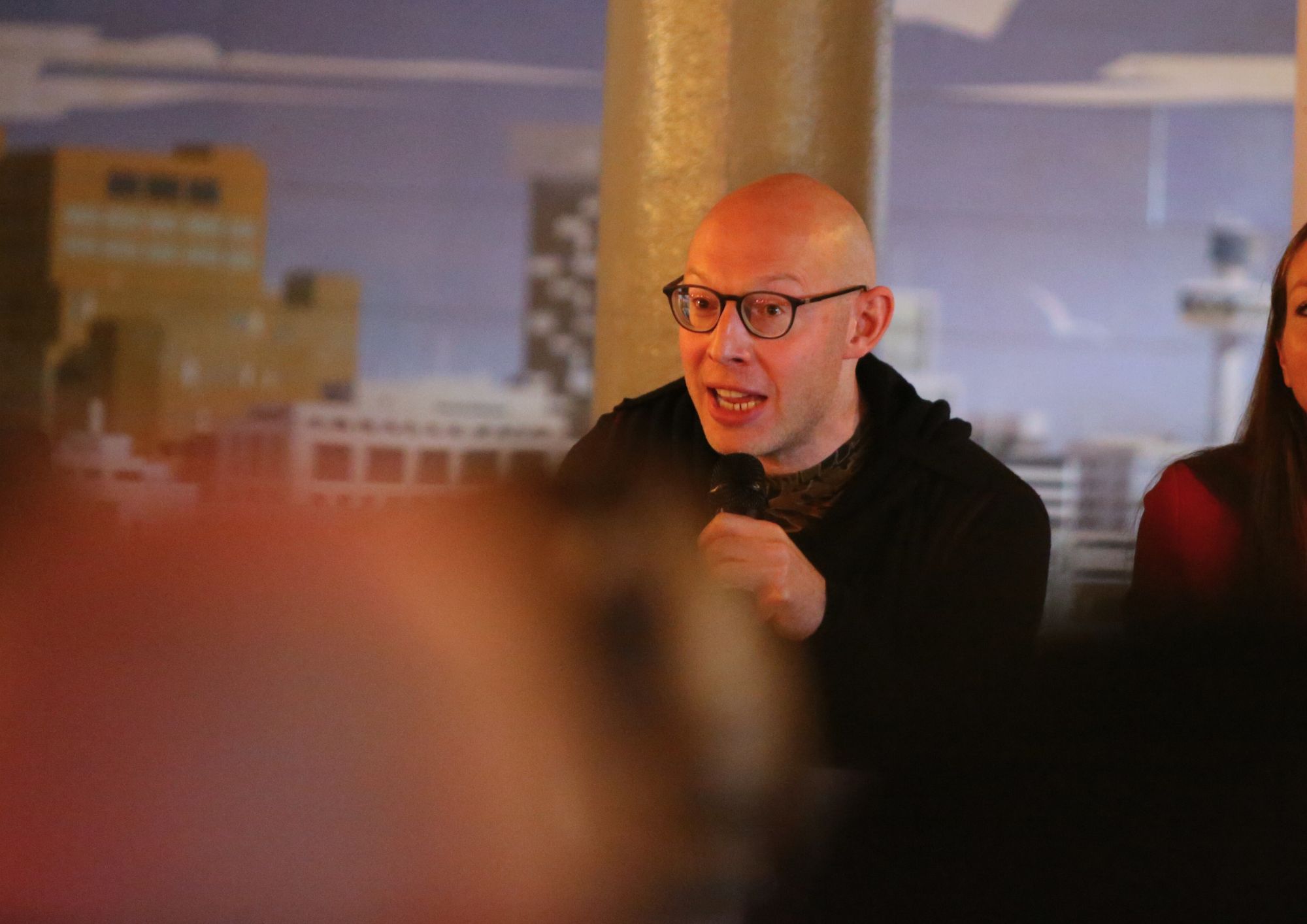John Gulliver: How libel threat leaves secrets to only those ‘in the know'
Tax expert Dan Neidle tells conference fringe meeting about SLAPP dangers
Thursday, 12th October 2023 — By John Gulliver

Dan Neidle speaking at a meeting organised by the Society of Labour Lawyers in Liverpool
IT’S about time somebody spelt out the truth in simple terms about how our libel laws often do more harm than good.
So step forward tax expert Dan Neidle who appeared at a self-proclaimed “lefty lawyers” fringe event at the Labour Party conference and warned that important details about high-profile people in politics often remained hidden from public view.
He has had his own brush with legal threats after writing about former chancellor Nadhim Zahawi’s tax affairs and ending up with a warning that he would be sued for his remarks.
But the case became characterised as a SLAPP – standing for Strategic Lawsuits Against Public Participation – and Zahawi, who you probably haven’t heard much of recently, had picked on the wrong guy. Mr Neidle stood by everything he had written about offshore accounts and so on, and used his expertise to avoid what might have been a very long and very expensive legal case.
But speaking to a packed audience in the appropriately named Revolution bar on Tuesday, the lawyer urged an incoming Labour government to shake things up, and help open up the secrets behind those running the country.
Given they are the ones who will no doubt be running the country and therefore face the greatest press scrutiny, perhaps Sir Keir Starmer and co may not be as eager to change the rules as Mr Neidle would like. But they should be at least interested in what he is saying.
Even in the world of local newspapers, the New Journal has over the years been unable to print everything that readers deserved to know. One particular case from yesteryear sticks out, often talked about in private but never opened up to the public.
Who knows the course of Camden’s history if people had known more?
The relative silence on important allegations was because the cost of even preparing a response against a single legal letter is a drain on ever-shortening budgets.
Even if a newspaper knows that it has a 95 per cent chance of defending itself in court, the cost of getting to that stage would risk bankrupting a small title. In those situations, the wealthy can insulate themselves.
“If you are an individual it is irrational to persist with an accusation against someone wealthy and powerful,” said Mr Neidle.
“Irrational because you cannot financially win. Even if you are a well-resourced newspaper you still have to factor into the maths the time of spending one or two years defending a libel action. It is not rational for The Times, The Guardian, the FT to spend all of their time defending a libel claim. I’m thankful that they do but they can only just do it – and for most individuals, bloggers, tweeters, it’s impossible.”
Mr Neidle said after repelling Mr Zahawi he was contacted by bloggers and tweeters who had received similar threats. They deleted their work “and in most cases never commented publicly on anything again”. In other words, scrutineers and critics were silenced.
He accepted that among the legal fraternity, he probably wasn’t popular for talking about the need for reform – libel is good work for the lawyers after all.
But one of the suggestions he shared was to push libel cases into a small claims court-style system, which he said would mean “having informal hearings where the best case outcome for the winner is a requirement that the defendant apologises, no costs, no lawyers”.
Or the UK could turn to the example of the United States where those suing must prove malicious intent. With no change, he warned:
“There’s a lot of people in the public eye, and people in the know know stuff about them but cannot print it. That is a threat to the rule of law, it’s a threat to democracy that we have… If we want to hold the wealthy to account, we have to be able to talk about them.”
He’s right, it’s probably not the first thing on Mr Starmer’s to-do list for his first 100 days in Downing Street but it was a fringe meeting with plenty of food for thought.
